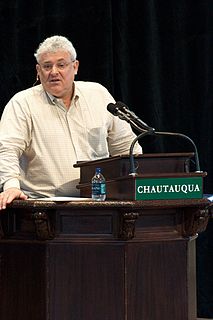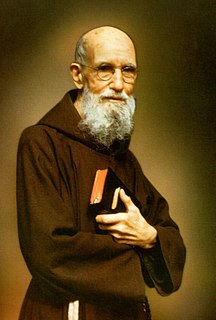A Quote by Chen-Ning Yang
Science has become something that everybody knows he has to pay attention to, but not everybody is a believer. So I don't think we should equate science with religion. But, that science is progressively playing a more and more important part in the life of every individual is obvious.
Related Quotes
Science is like society and trade, in resting at bottom upon a basis of faith. There are some things here, too, that we can not prove, otherwise there would be nothing we can prove. Science is busy with the hither-end of things, not the thither-end. It is a mistake to contrast religion and science in this respect, and to think of religion as taking everything for granted, and science as doing only clean work, and having all the loose ends gathered up and tucked in. We never reach the roots of things in science more than in religion.
People ask, 'Is the science going to run ahead of the ethics?' I don't think that's always the problem. I think it's that the science runs ahead of the politics. Bioethics can alert people to something coming down the road, but it doesn't mean policy and politicians are going to pay attention. They tend to respond when there's an immediate crisis. The job of the ethicist, in some ways, is to warn or be prophetic. You can yell loudly, but you can't necessarily get everybody to leave the cinema, so to speak.
This [the opening of the Vatican City radio station built by Marconi earlier in 1931] was a new demonstration of the harmony between science and religion that each fresh conquest of science ever more luminously confirms, so that one may say that those who speak of the incompatibility of science and religion either make science say that which it never said or make religion say that which it never taught.
Science without religion is dangerous because it necessarily entails a mechanization of humanity and consequent loss of individual autonomy and spirituality. On the other hand, religion without science is powerless because it lacks an effective means through which to actualize the ultimate reality. Science and religion must work together harmoniously.
I think evolution should be taught as an accepted principle. I say that also as the daughter of a school teacher, a science teacher, who has instilled in me a respect for science. I think it should be taught in our schools. I won't ever deny that I see the hand of God in this beautiful creation that is earth. But - that is not a part of state policy or a local curriculum in a school district. Science should be taught in science class.
I believe it to be of particular importance that the scientist have an articulate and adequate social philosophy, even more important than the average man should have a philosophy. For there are certain aspects of the relation between science and society that the scientist can appreciate better than anyone else, and if he does not insist on this significance no one else will, with the result that the relation of science to society will become warped, to the detriment of everybody.


































